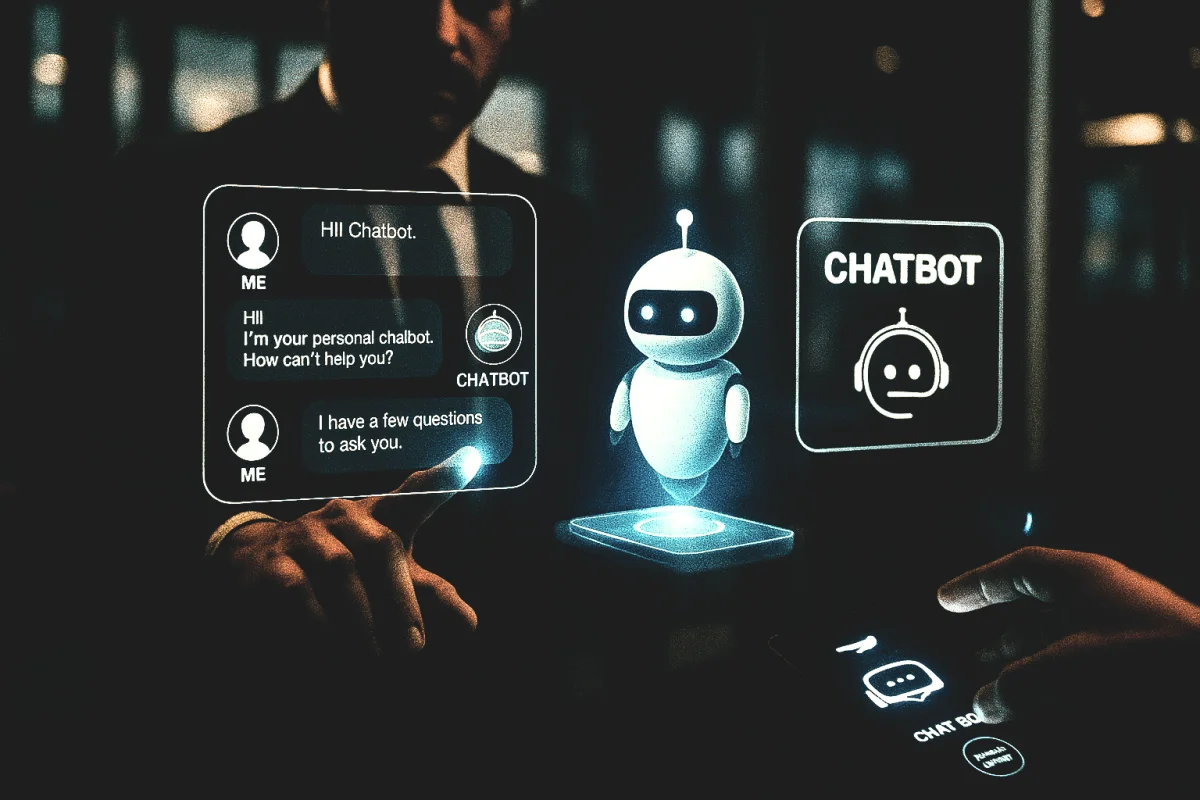How Does an AI Chatbot Work in Real Business?
In the age of artificial intelligence, AI chatbots have become essential tools for everyday business operations. In the past, customer interactions relied solely on human resources, but today automated systems not only answer questions, they also diagnose problems, provide recommendations, and even handle sales processes. By 2025, chatbots have become the bridge between companies and their customers.

What is an AI Chatbot?
An AI chatbot is a software agent that uses natural language processing (NLP) and machine learning algorithms to communicate with users. Through continuous learning, it acquires new responses, gains knowledge about the company, and conducts intelligent dialogue in real time. Unlike traditional automated replies, modern chatbots can recognize context and user intent.
How Does It Work?
The mechanism of a chatbot works through several stages:
- User input — the customer submits a question or request.
- Language processing — the system analyzes the text using NLP algorithms.
- Intent recognition — the chatbot identifies the user’s intent (e.g., order, support, information).
- Response generation — AI produces the appropriate reply or takes an action.
- Learning mechanism — after each interaction, the system collects feedback and improves.
All of this happens in real time, creating the impression of a natural conversation for the user.
Business Use Cases
AI chatbots are being adopted across multiple industries:
- Customer service — answering FAQs, resolving ticket or order issues.
- Sales — recommending products based on user preferences.
- Marketing — delivering personalized campaigns and timely notifications.
- HR and recruitment — answering candidate questions and screening applicants.
- Finance — assisting customers with account management and transaction tracking.
Advantages
AI chatbots bring many benefits to businesses:
- 24/7 availability — customers can get help at any time.
- Instant response — replies are generated in seconds.
- Cost reduction — lowering customer support expenses.
- Personalization — offering tailored recommendations for each user.
- Scalability — serving thousands of users simultaneously.
Challenges
Despite the benefits, there are challenges. Sometimes a chatbot struggles with complex queries, leading to user frustration. Cybersecurity is also crucial, since bots handle sensitive data. Businesses must ensure regular updates and human oversight to maintain reliability.
Real-World Examples
Large companies have already proven the effectiveness of chatbots. For instance, e-commerce platforms use them for order tracking, banks for financial consultations, and airlines for ticket booking and flight information.
Conclusion
AI chatbots in real business are no longer a futuristic idea—they are already setting new standards for customer engagement. Their adoption gives businesses speed, flexibility, and a competitive edge. 👉 Do you think chatbots will one day completely replace human customer service?
✍ Article Author
- Registered: 26 July 2025, 15:34




 Silent Cat 🐾
Silent Cat 🐾